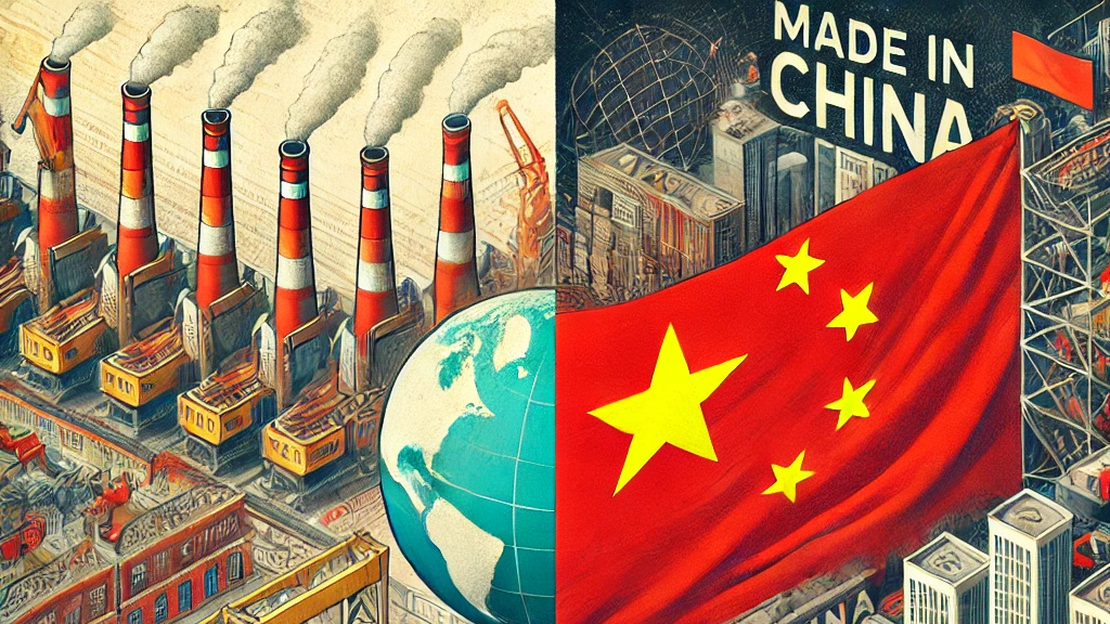Made in China vs. The 'Evil' China: The Global Hypocrisy
In the modern world, China occupies an undeniable space in the global economy. The phrase “Made in China” is stamped on everything from smartphones to sneakers, a symbol of the country’s manufacturing prowess. At the same time, “China” often evokes harsh criticism, with terms like “communist regime” and “authoritarian state” frequently making headlines. This juxtaposition exposes a glaring hypocrisy: the world decries China’s politics but thrives on its economic output.
The Rise of “Made in China”
Over the past few decades, China has become the world’s factory, producing goods at unmatched scales and costs. Companies from all over the globe, particularly in Western nations, have outsourced production to China for economic efficiency. This interdependence is rooted in capitalism itself—seeking the lowest cost to maximize profits.
Yet, while consumers gladly buy affordable products “Made in China,” the very same nations and people often criticize China’s political system, branding it as oppressive or antithetical to “Western values.” This paradox is not just ironic but also emblematic of how deeply intertwined economics and ideology have become.
The Political Narrative: A Tale of Two Chinas
Politically, China is often painted as a villain in global discourse. Its governance under the Communist Party, policies in regions like Xinjiang, and tensions over Taiwan frequently dominate international conversations. Critics frame China as a symbol of authoritarianism, contrasting it with the supposed freedoms of democratic nations.
But while these critiques fly, the economic reality tells another story. China plays a central role in sustaining global markets. From Apple iPhones to Tesla batteries, the reliance on China’s production ecosystem is staggering. It begs the question: Can the world afford to reject the “evil” China while it continues to embrace “Made in China”?
Capitalism and Selective Morality
This contradiction highlights a larger issue: selective morality in global capitalism. For all the rhetoric about human rights and democratic ideals, countries often turn a blind eye when it comes to profits. Corporate supply chains rely on Chinese labor and infrastructure because it is cost-effective, even when controversies—like labor conditions or environmental impact—arise.
At the same time, China itself has evolved. While still officially communist, its economic system is a unique hybrid of state control and market-driven capitalism. This mix makes it hard to fit China neatly into the ideological boxes of “communist” or “capitalist,” complicating the narrative further.
The Cost of Hypocrisy
The global dependency on China’s manufacturing comes with consequences. By outsourcing production, many nations have ceded critical industries and become vulnerable to supply chain disruptions, as seen during the COVID-19 pandemic. Yet, instead of reckoning with this dependency, the focus remains on scapegoating China’s political system.
If the world continues this hypocritical stance—relying on China’s goods while condemning its politics—it risks perpetuating the very system it critiques. True progress would require rethinking these interdependencies, balancing economic pragmatism with ethical consistency.
Conclusion: Facing the Paradox
The divide between “Made in China” and the “evil” China narrative is a reflection of global double standards. It is easy to criticize, but harder to untangle the web of reliance that makes such criticism feel hollow. Perhaps it’s time to stop pretending these two Chinas are separate and start addressing the uncomfortable truth: the world cannot have its affordable goods without also reckoning with the politics behind their production.
⚠️ Please take a look at the LLM Disclaimer
